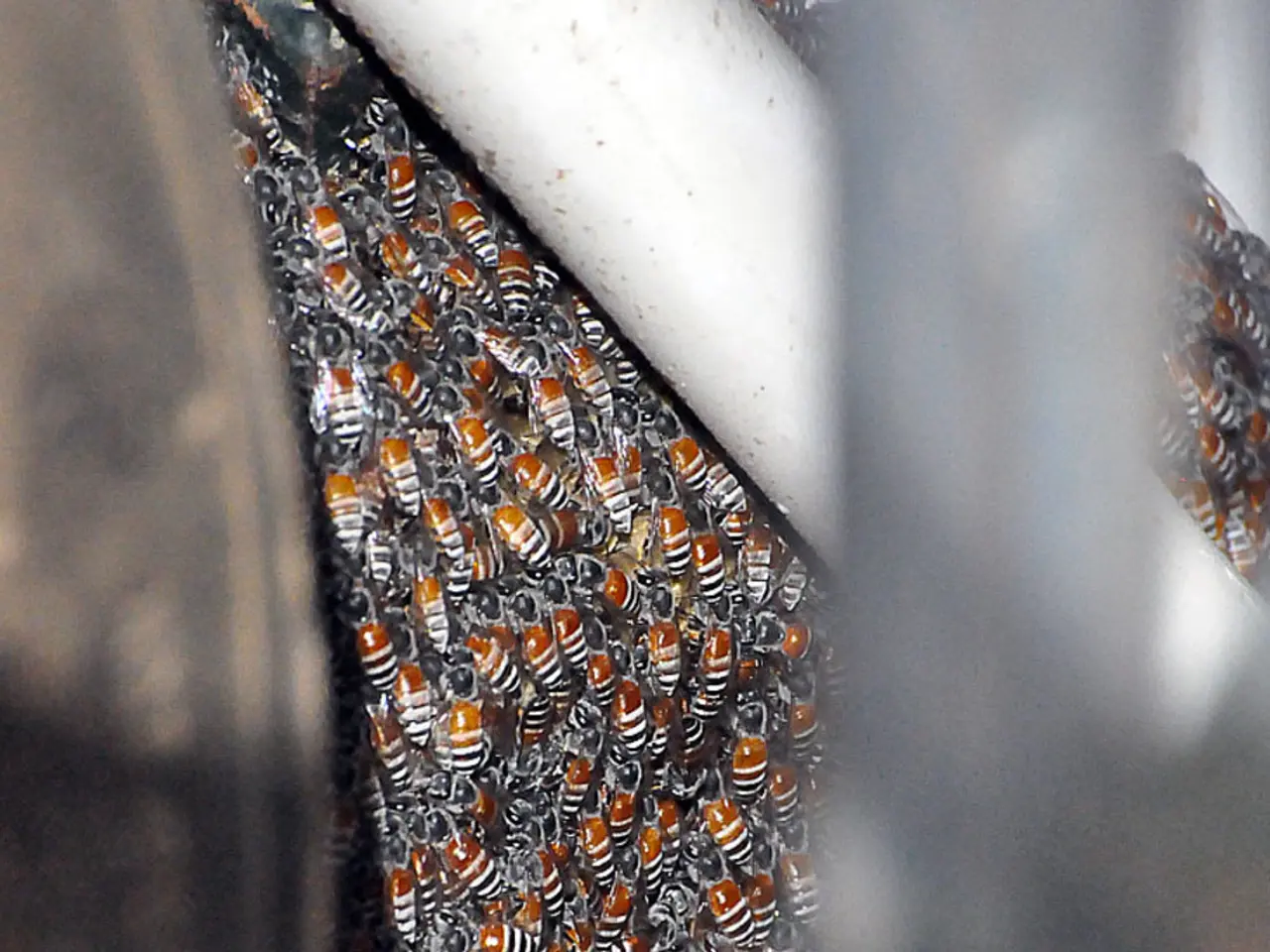Efficient and Eco-friendly Wasp Management Solutions
Controlling Wasps and Preventing Infestations: A Guide to Non-Toxic Methods
As the warmer months approach, it's essential to take measures to prevent and control wasp encounters around your home. By adopting non-toxic methods, you can ensure a safe environment for birds and wildlife.
Eliminate Attractants
To start, remove food and water sources that attract wasps. Keep garbage bins tightly sealed, clean up sugary spills, and cover pet food outdoors. Eliminate standing water by fixing leaks and emptying containers, as wasps need water to thrive.
Seal Entry Points
Inspect your home for cracks, gaps, or holes in walls, eaves, windows, and vents. Seal these entry points with materials like caulk, mesh, or steel wool to prevent wasps from nesting.
Use Non-Toxic Repellents
Spray potential nesting and entry areas with homemade sprays made from water, soap, and essential oils such as peppermint, lemongrass, clove, or geranium. These natural repellents deter wasps without harming wildlife.
Plant Wasp-Repelling Plants
Incorporate mint, citronella, and geraniums around your garden or outdoor areas to naturally discourage wasps from frequenting the area.
Keep Your Surroundings Clean
Regularly clear away garden debris, fallen branches, and leaf litter that provide shelter for wasps. Store garden tools and materials properly to reduce nesting sites.
Monitor for Nests and Traps with Caution
Frequently check for wasp activity and nests in sheltered spots like roof voids, sheds, and eaves. Small nests can sometimes be removed with protective gear at low activity times, but larger nests should be handled by professionals to avoid risks.
Support Natural Predators
Encourage birds and other natural wasp predators by maintaining a wildlife-friendly garden, which helps keep wasp populations naturally balanced without harm to the ecosystem.
By implementing these methods, you can effectively reduce wasp encounters around your home without resorting to toxic chemicals. If wasp infestations become unmanageable, seek pest control experts who prioritize environmentally safe removal practices.
In addition to these methods, consider using products like the Flies Be Gone Non-Toxic Fly Trap and Mosquito Dunks to further control pests in a safe and eco-friendly manner. A well-sealed, clean, and uncluttered environment, combined with natural repellents and predator support, will help you enjoy a wasp-free summer.
Adopt an outdoor-living lifestyle that supports a healthy home-and-garden ecosystem by using non-toxic methods to manage wasps and other pests. Plant wasp-repelling plants such as mint, citronella, and geraniums, and attract natural predators like birds to maintain a balanced ecosystem.




